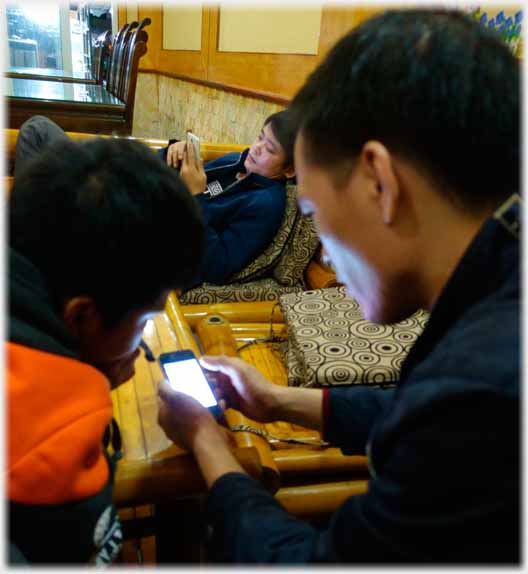
Proximity and Responsibility
[Milgram, while leading the reader through his investigations, writes:] Perhaps there will be no obedience when the victim’s suffering is more clearly communicated; when the victim is given a sense of presence, and he is seen, heard, and felt. [In the next procedure] the subject is in an improved position to observe the victim, ... the actions of the subject now come under scrutiny by the victim. Possibly it is easier to harm a person when he is unable to observe our actions than when he can see what we are doing.
Stanley Milgram (1974)

And so it was. Milgram’s procedures sought to explore the idea of obedience to authority, they followed the debates over the Eichmann trial of 1961. This work greatly extended our understandings of human responsibility. Central to these was the idea of proximity. Plainly the more remote we are from those we attack the less we mind: strangling; shooting; bombing; pressing a button - each is easier to countenance, each less proximate.
Morality
 Wonder at the base of our ethical systems.
is based on how we, whole physical and mental beings, interact with our fellows. As we physically move away from others, so we feel less responsible for them. It is not trivial that we can see this in our most mundane of activities. The use of, and abuse through, cell
phones.
Wonder at the base of our ethical systems.
is based on how we, whole physical and mental beings, interact with our fellows. As we physically move away from others, so we feel less responsible for them. It is not trivial that we can see this in our most mundane of activities. The use of, and abuse through, cell
phones.
 The power of change which hooks us to cell phones.
What we say to the person next
to us,
The power of change which hooks us to cell phones.
What we say to the person next
to us,
 The individual and the social group.
is modulated compared to what we might say via a phone across the room, let alone what people happily disgorge over unmet strangers. For all human social issues, proximity matters profoundly.
The individual and the social group.
is modulated compared to what we might say via a phone across the room, let alone what people happily disgorge over unmet strangers. For all human social issues, proximity matters profoundly.
Milgram’s book Obedience to Authority was published by Harper & Row in the USA, and by Tavistock in the UK, these quotes are taken from pages 33 and 36.
Cell phones in use at increasing distances.
Above, hovering on blue introduces a link: click to go, move away to stay.

Saturday 9th November 2024
 ...guide to this site
...guide to this site